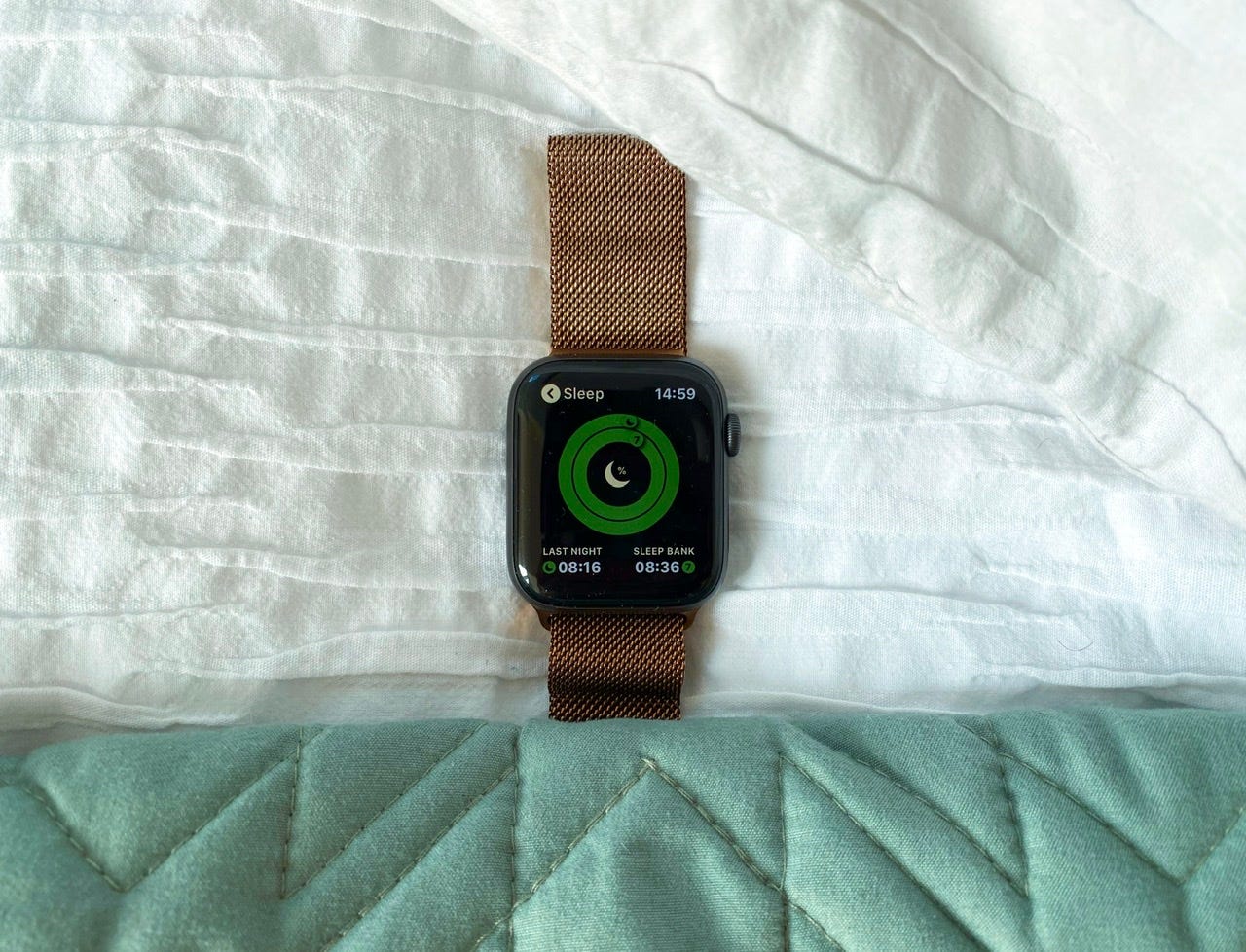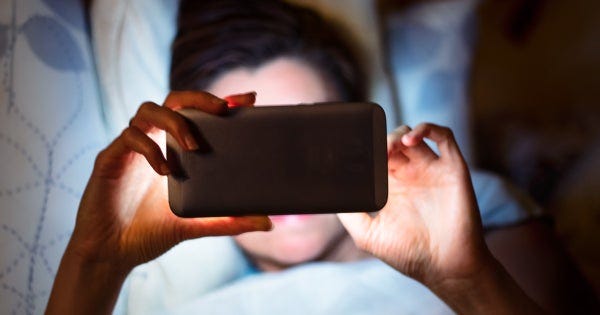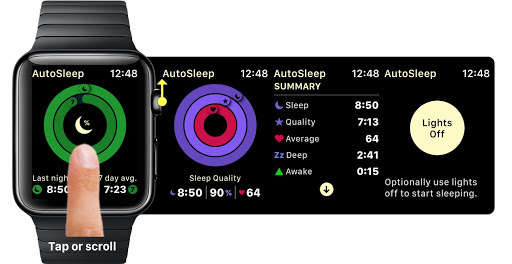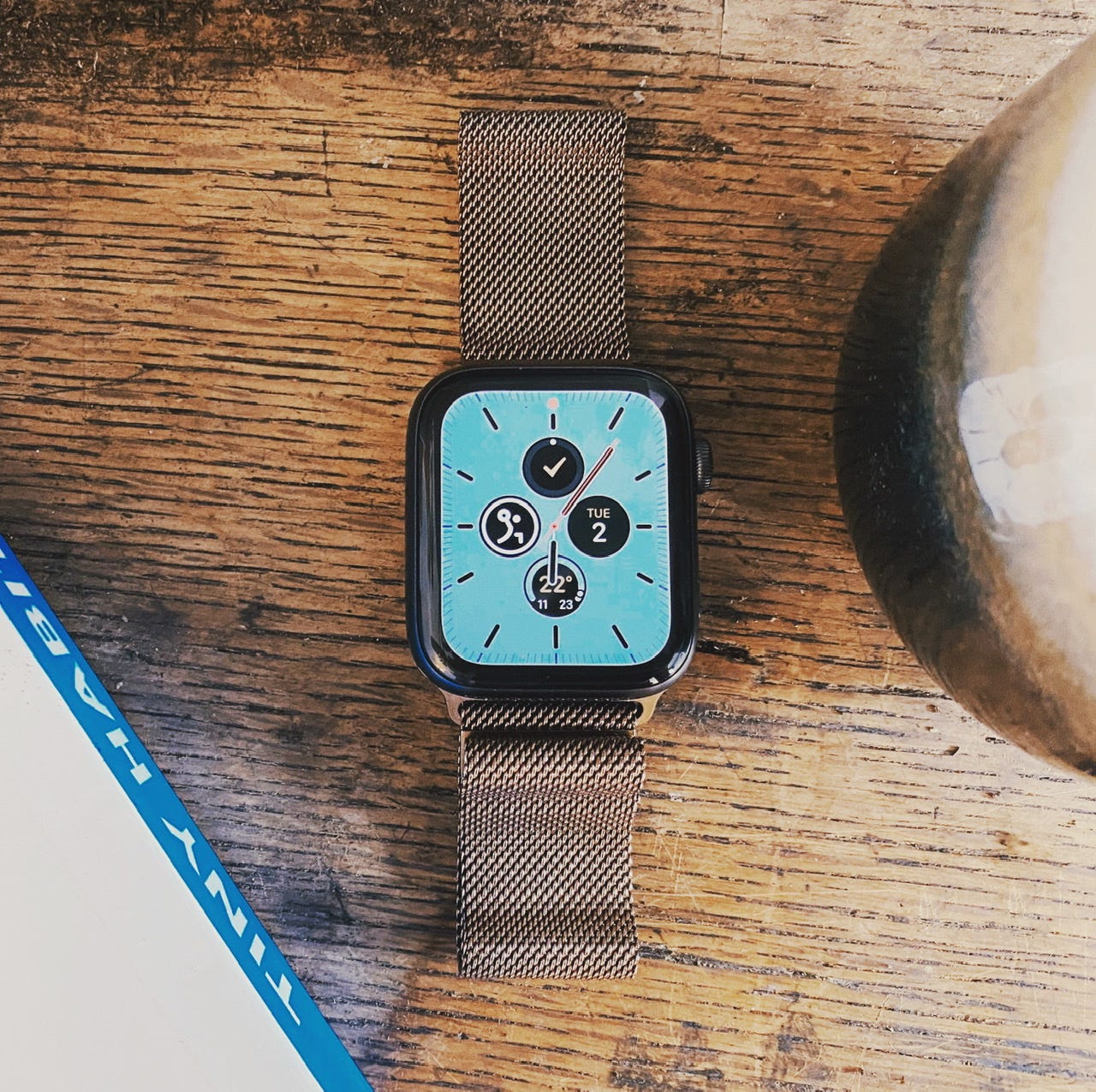In the first issue, I outlined how the Apple Watch makes me happier, calmer and more productive. Today’s let’s talk about perhaps the most important tenet behind feeling better - sleeping well.

Why is sleep important?
Instead of listing out academic or research based reasons why sleep is important, I’m going to ask you a simple question - do you feel better after a good night’s sleep?
I’m willing to bet the answer is a resounding yes. I feel like I am 10% happier, 20% calmer and 30% more productive on days I have had a refreshing night’s sleep. So much so that I now prioritise sleep over most things. Of course, I still have late nights - life is too short to not indulge and savour pleasures such as long evenings catching up and drinking with friends, or finishing a nice late-night movie with my girlfriend. They are however, the exception. My regular routine is one which prioritises sleep.
What made me change? Honestly, it was getting a whole week of solid 8 hours sleep. It made me recognise how much better I felt all around. There is some evidence to suggest that most people are so sleep deprived that always run on a sleep-deficit and don’t realise how much better things are when they are well rested. I think I was one of those.
If you’re interested in reading more about the importance of sleep - I recommend Matthew Walker’s Why We Sleep.
How to change your sleeping pattern
Changing your sleep patterns is difficult, but not that hard. It takes a little bit of patience, but a couple of weeks of simple changes is all you really need. I’ll focus on three interventions, and how the Apple Watch helps with each.
1. Put your phone away at night

It’s not just about the blue light (which has been shown to disrupt your body’s natural circadian rhythm - your natural sleep-wake cycle). It’s not even necessarily about less screen time (although that definitely helps). It’s about having a routine and signal to wind down, rest and relax before bed. Putting your phone away is a clear signal to your brain that it’s the end of the day, and it’s now time to sleep. No more novel, interesting and stimulating distractions for you today.
Towards the end of the night, we are tired, and therefore more likely to do counter-productive things such as go on an endless YouTube or Netflix spiral, Or get really involved in a reddit argument/discussion/duel.
Here’s a concern some people have - they worry about not being in touch and available for any personal or work emergencies. If this is you, add those contacts to your ‘favourites’ list on your iPhone. This let’s them ring you even when ‘Do Not Disturb’ mode is on throughout the night. You can now go to sleep knowing that only your VIPs can contact you.
Concrete action: Ask Siri to set you a reminder every night for 9 PM to put away your phone. After this, it’s Apple Watch only.
Here’s the secret real making-you-feel better hack behind putting your phone away at night - you don’t have it right next to you in the morning. That means you need to get up naturally (or with a gentle Apple Watch alarm) and then get out of bed, instead of spending the first 20 minutes of your day in a zombie-daze scrolling through the proverbial and literal content “feeds”.
By getting up and getting ready instead of staring at your phone first thing in the morning, you are approximately 145% more likely to have a more productive, enjoyable day.
Q: But I use my phone as my alarm, what do I use now?
A: You can use your Apple Watch! It’s a better alarm in every way. It gently wakes you up with a tap on your wrist. It also means you don’t wake up your partner. I love this because it gives my girlfriend more time to sleep when I get up early for work. You can also use a radio, normal old-school alarm clock, or your punctual pet dog who will lovingly wake you up, even if it is the weekend.
2. Track your sleep

A friend of mine asked me a really valid question when he nonchalantly asked me “How do you use your Apple Watch?” and got more than he bargained for as a reply. “How does tracking your sleep make any difference? Don’t you just know if you’ve slept well or not?”
Sometimes you do. Shockingly, you will come to realise, many times you don’t. It’s really helpful to your sleep routine to wake up the night after a long binge, and see the numbers behind how shockingly badly you slept. Or see how good the numbers are after a day of exercise. This helps reinforce good behaviour automatically. You will see worse numbers when you drink too much, eat late and are stressed. You will see better numbers on days you put your phone away, reduce your caffeine intake and wind down before bed.
Q: What’s the best Apple Watch sleep app?
There are two kinds of sleep tracking apps - ones that do it automatically and you don’t have to do a thing apart from wearing your Apple Watch in bed, and others that you have to trigger that you are going to sleep. I only recommend the first kind.
How do they work? A mixture of using your heart rate data, movement data, and their own fancy algorithms. This is important because some might work better than others for you. It’s worth trying them all (at least the free ones) for a week and see what works best for you.
Autosleep (£3.99) - My favourite overall for automatic sleep tracking. I like how you get an overview of your sleep all within your Apple Watch, and the concept of ‘sleep rings’ like ‘activity rings’. I find this to be the most accurate overall.
Sleep++ (free) - simple and effective. I’d start here if you want a free option. It doesn’t have all the bells and whistles of the other apps, and you can only view the report on the iPhone.
Sleepwatch (free with optional expensive premium subscription) - this is my second favourite app, and I only use the free component. It has a better ‘sleep timeline’ where you can see where in the night you have had deep or light sleep.
Pillow (free with optional expensive premium subscription) - nicely designed, but you can only view results on the iPhone not the watch directly. I personally found this wasn’t all that accurate for me.
Concrete action: download one of the apps and try tracking your sleep tonight.
Q: But doesn’t this drain your battery life; I charge my Watch at night?
I’ve found that you can go into bed with about 30% battery remaining and you’ll be fine. My routine now is I put the Watch on the charger as soon as I wake up whilst I am in the shower and getting ready. Those 30-45 minutes are enough to keep the Apple Watch going all day and night in my experience.
3. Exercise - complete those rings

Exercise has too many benefits to list or cover today, but better sleep is definitely one of them. Remember those nights where you slept like a baby after a long hike or workout? What’s the evidence here? In brief:
Systematic review (an evidence-based review based upon multiple studies) demonstrating “moderately positive effects” on sleep quality.
Study showing increased sleep duration, shortened sleep latency and overall efficacy seen after 18 weeks in group undertaking exercise and sleep education (which essentially… in a very small way… is reading this article)
Another systematic review showing the inter-relationship between sleep and exercise and they ‘exert positive effects on one another’.
Concrete action: Complete your 30 minute exercise activity ring and correlate this with your sleep quality that you tracked above. You will come to recognise and believe how exercise makes you sleep and feel better.
One caveat: high-intensity exercise just 2-3 hours before going to bed can be counter-productive and impair sleep. Try getting your exercise in during the day or just after coming back from work. But if you can’t do that, still I would recommend getting those 30 minutes in, even before bed.
I’ll cover exercise in extensive detail in a latter post, but there is a beautiful symbiotic relationship between sleep and exercise. The more you exercise the better you sleep and the better you sleep the more you are able and are motivated to be exercise.
Thank you. Thank you, sincerely, for reading this. It’s a long post, and I am truly passionate about the Apple Watch and sharing how to make the best of it.
Next week, we will be talking about being more productive and focused - all from your wrist.

Thank you for reading this, I hope you found it useful. Do you want to transform your Apple Watch into a powerful wrist computer? Put your address in below and every Saturday morning you will receive an email from me showing you how to do just that. Mine makes me happier, calmer, and more productive, and I want to share this with you.
I believe the best writing caters directly to its readers. By subscribing, you will be a part of a 150+ strong community. You can ask me your questions directly and influence the upcoming posts. I'd love to have you on board.
If you’d like shorter, more regular content, please follow me at @applewatchology on Twitter and @apple.watchology on Instagram.
Last week, I outlined the plan behind this long-form editorial and how the Apple Watch makes me happier, calmer and more productive: Click the photo below to read that piece.

Good luck trying these changes. Please reply to me or leave a comment below with your experience, I’d love to hear back. If you found this useful, please share this to someone else can read this and improve their sleep.



